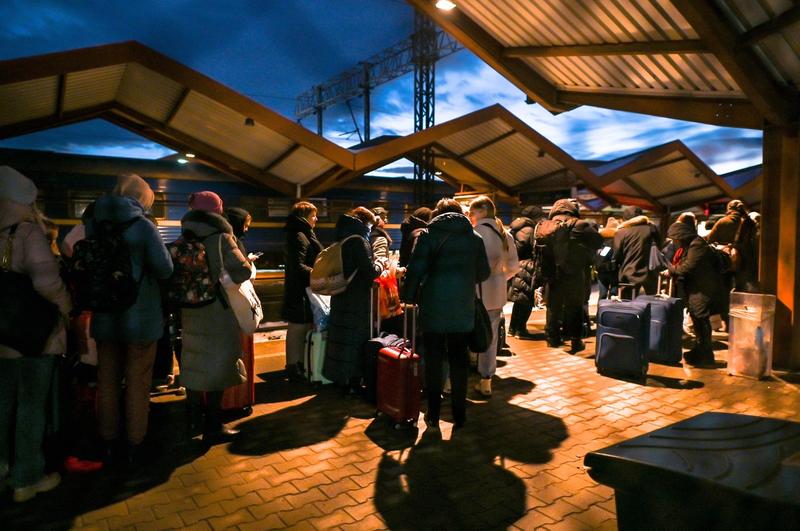The German government plans to halve from next year the federal aid given to the states to cover the costs of receiving and integrating migrants, the finance ministry in Berlin announced on Tuesday, according to Reuters.
Ukrainian refugees at the train station in Przemysl, PolandPhoto: Artur Widak – NurPhoto / Shutterstock Editorial / Profimedia Images
Data from Germany’s Federal Office for Migration and Refugees shows that more than a million Ukrainian refugees arrived in the country after the start of the Russian invasion last year, while the number of arrivals from other countries increased in 2022 by around 50% compared to 2019.
The German federal government has for years paid regional authorities in the country’s states a fixed monthly sum for each refugee they took in, the measure implemented after the 2015-2016 refugee crisis, when more than a million people from the Middle East who they fled war and persecution and ended up in Germany.
But in 2021, the government then led by Angela Merkel changed the funding mechanism, after the country’s 16 Länder pressed to receive a fixed amount of money for refugee expenses, regardless of their number.
Vladimir Putin’s start of the war in Ukraine pushed Germany’s spending on refugees and combating the causes that led to their displacement to around 28 billion euros, of which around 15 billion went to local states and municipalities.
Cuts in refugee aid could also affect Ukrainians in Germany
Olaf Scholz’s government now plans to cut funding to refugee states as it tries to plug a €20 billion hole in the federal budget, and has already given Ukrainians direct access to the country’s welfare system.
But a government source told Reuters that Scholz’s administration also plans to suspend its non-local aid to care for and integrate Ukraine’s one million refugees.
For now, the finance ministry has announced that the government will cut direct refugee costs from €3.75 billion in 2023 to €1.25 billion next year.
“We emphasize again that the states must provide the municipalities with the necessary financial resources,” a spokesman for the finance ministry said on Tuesday, adding that regional leaders had not yet reached an agreement on this before consultations on the subject with chancellor Olaf Scholz in November.
Land leaders stress that they still need more funds to cover the indirect costs of refugees, such as their children’s schooling.



